
Health-care professionals (HCP) have a responsibility to protect and promote maternal and infant health and breastfeeding is one of the most effective measures to support this. Increasing breastfeeding rates in Australia is crucial to improving population health, but the absence of robust policies, programmes and education for HCP undermines this effort. The pervasive marketing of commercial milk formulas (CMF), including sponsorship of HCP and their organisations, has introduced significant conflicts of interest that distort clinical practice, education, research and guidelines developed in the infant feeding domain. This is a call to action to all HCP to seek independence from the CMF industry and to actively support breastfeeding in their practice.
IBLCE Content Outline (VII)
VII. Clinical Skills
Well-organized sensory systems provide the foundation for relational feeding. Sensory interactions communicate the story of the dyad, a window into strengths and challenges. Encouraging families to attune to their own sensory preferences and that of their infant can significantly influence the dynamics of the body/chest feeding relationship. This presentation will explore the basics of sensory processing as it relates to provider, parent, and infant co-regulation in the context of chest/breastfeeding and lactation support. We will explore basic neurology and cultural influences of the 8 senses though dyadic examples. Ways in which subtle signs of sensory disorganization and sensory processing disorder present in chest/breastfeeding relationships will also be reviewed. Participants will learn practical strength-based sensory strategies to support families in the beginning stages of life, feeding, and beyond.
IBLCE Content Outline (I, III, V, VI, VII)
I. Development & Nutrition
III. Pathology
V. Psychology, Sociology & Anthropology
VI. Techniques
VII. Clinical Skills
In this presentation, Melissa shares her doctoral research which reveals new insights into the physical and psycho-social challenges facing mothers when breastfeeding a late preterm infant in the special care nursery (SCN). Late preterm infants, born between 34 –36.6 weeks gestation, face higher rates of morbidity compared to their term counterparts. Breastfeeding is known to help reduce the incidence of neonatal morbidity and mortality; however, the establishment of breastfeeding can be problematic. These infants in Australia are commonly admitted into a SCN after birth, separating them from their mother and accentuating the challenges of breastmilk-feeding. Melissa explores ways to address these challenges to better meet mothers’ breastfeeding goals.
IBLCE Content Outline (I, II, III, V, VI, VII)
I. Development & Nutrition
II. Physiology & Endocrinology
III. Pathology
V. Psychology, Sociology & Anthropology
VI. Techniques
VII. Clinical Skills
It is well known that breastfeeding is beneficial to both mother and baby. What happens if breastfeeding is not well established? Researchers are looking closer to postpartum mood disorders and what influence breastfeeding may have in a new mother’s psychological wellbeing. Postpartum depression has been linked to low breastfeeding rates, as well as lower duration rates. It has been estimated that postpartum mood disorders strike an estimated 10-20% of new mothers. However, it has been argued that this number reflects only those women who have sought help for their symptoms. There are several predictors that can help determine if a woman is at risk for postpartum mood disorders. This presentation will aid those working with new families to be aware of the signs and symptoms of postpartum mood disorders and how to preserve the breastfeeding relationship.
IBLCE Content Outline (V, VII)
V. Psychology, Sociology & Anthropology
VII. Clinical Skills
While some clinicians might roll their eyes when ‘lactation cookies’ are mentioned we know foods and herbs have long been used to nourish the postpartum parent and enhance lactation. Some topics this talk aims to cover: Does nourishment matter when it comes to breastmilk quality or quantity? How can we approach galactagogues for lactating parents in an individualized way? How can clinicians evaluate evidence and determine safety regarding galactagogues? We know that parents coping with milk supply concerns are often desperate to ‘try anything’. Clinicians have an important role in helping families understand the risks and benefits of galactagogues. By helping parents identify resources and information around foods and herbs, we can help empower them to make informed choices.
IBLCE Content Outline (IV, VII)
IV. Pharmacology & Toxicology
VII. Clinical Skills
This presentation will highlight the multidimensional, individual, interpersonal, institutional, and community-level structures and existing policies that inadvertently harbor biases and impede care for Black mothers within birthing centres. Empirical data was gathered through semi-structured interviews with Black mothers to acquire a contextual understanding of the experiences, attitudes, and beliefs to reveal how perceptions of racism and discrimination in birthing centres create negative implications for health-seeking behaviour, deterring obtaining proper care and expressed underutilization of health services. The results of this study provide insight into the perceptions of implicit bias, racism, and discrimination within institutional structures and how existing policies can negatively influence exclusive breastfeeding practices among Black mothers. Additionally, this presentation provides insight and strategies into how to reduce exclusive breastfeeding disparities and assist with developing best practices for managing and supporting exclusive breastfeeding that positively influence optimal health outcomes among Black women and their children. This topic focuses on the nature of health-seeking regarding human lactation and how perceptions of bias may result in the underutilization of health services among Black families.
IBLCE Content Outline (V, VII)
V. Psychology, Sociology & Anthropology
VII. Clinical Skills
The mammary gland (breast) is one of the most dynamic, defining and fascinating organs possessed by mammals. During lactation, it can produce astonishing amounts of milk each day; act as a temporary and mobile storage vessel for this product; and deliver it to the neonate upon audio, visual or touch-based stimuli. A mother’s milk—whilst able to serve as the sole source of nutrition for the dependent neonate(s) after birth—is far more than a source of nutrients for growth and development. Instead, milk is a type of “personalised medicine”, replete with immune cells, enzymes and prebiotics. Despite its importance, we know very little about the cells that make and eject milk during lactation. This means that we have very little understanding of why some women may struggle to breastfeed, the demands placed on these pathways when babies are born prematurely, or even how drugs used during pregnancy and breastfeeding may affect milk supply or release. In this presentation, Dr Davis will discuss what her laboratory has uncovered on the biology of milk production and release using genetically engineered animal models and new methods in microscopy.
IBLCE Content Outline (I, II, III, IV, VII)
I. Development & Nutrition
II. Physiology & Endocrinology
III. Pathology
IV. Pharmacology & Toxicology
VII. Clinical Skills
Nipple or breast thrush is a label frequently attached to lactating individuals who have symptoms such as shooting pains or skin changes. But is this actually evidence-based? Looking at anatomy, physiology, microbiology and pharmacology, the very concept of nipple/breast thrush comes under scrutiny in this presentation.
IBLCE Content Outline (I, II, III, IV, VII)
I. Development & Nutrition
II. Physiology & Endocrinology
III. Pathology
IV. Pharmacology & Toxicology
VII. Clinical Skills
Traditional galactagogues, primarily plant-based remedies, have been used in many cultures as part of postnatal care, even for women without milk supply problems. Recently, medications have been used off-label in clinical settings for women facing milk supply issues, and traditional galactagogues have also started to be used in non-traditional settings. Do they work? Are they safe? Recent research has aimed to answer these questions. Join us in this engaging session as we delve into the best available evidence on the effectiveness and safety of oral galactagogues for mothers breastfeeding term infants. Through case studies, we’ll explore how this evidence translates into clinical practice, helping healthcare providers offer individualized care to mothers facing challenges with breast milk supply. For researchers, we will also highlight gaps in galactagogue research and outline priorities for future studies.
IBLCE Content Outline ( IV, VII)
IV. Pharmacology & Toxicology
VII. Clinical Skills
Lactation is a fundamental aspect of human life and is a biological necessity that is deeply rooted in cultural beliefs, traditions, and societal norms. Lactation supporters can provide invaluable assistance to families seeking to lactate successfully. However, cultural differences and a lack of understanding of culture and diversity can create barriers between lactation supporters and the families we are trying to support. It is crucial that lactation supporters and health care providers are aware of and acknowledge the unique role that culture and diversity can play in this dynamic, both to prevent obstacles and to encourage lactation through culturally appropriate methods.
IBLCE Content Outline (V, VII)
V. Psychology, Sociology & Anthropology
VII. Clinical Skills
In this presentation Di Huimin explains the relationship between the basic theory of Traditional Chinese Medicine and plugged ducts encountered by breastfeeding mothers postpartum. She covers the basic theory of the treatment that involves using the meridians and acupoints to relieve breast problems, such as plugged ducts. She will demonstrate the Both Hands, Ten Fingers & Love manual therapies to facilitate gentle, comfortable and effective stimulation of the let-down reflex.
IBLCE Content Outline (III, VI)
III. Pathology
VI. Techniques
Asthma is one of the most common chronic diseases in pregnancy, affecting 13% of Australian pregnancies. Maternal asthma is associated with poor perinatal outcomes, including preterm birth, low birthweight and neonatal hospital admission, particularly when women have exacerbations or poor asthma symptom control during pregnancy. Notably, maternal asthma confers the greatest risk of adverse respiratory health outcomes in their children, including asthma development. Breastfeeding may mitigate this risk, however, women with asthma are less likely to breastfeed than women without asthma, despite the benefits to child lung health. The importance of supporting breastfeeding in women with asthma for intergenerational respiratory health, and specific barriers reported by women with asthma, will be discussed.
IBLCE Content Outline (I, III)
I. Development & Nutrition
III. Pathology
Human milk (HM) is the optimal infant nutrition. Yet the suitability of HM macronutrient composition, paired with the challenge of regulating HM intake, may deserve some consideration for infants with inherited metabolic disorders (IMD) requiring restrictive and controlled dietary management. Except for classic galactosemia, HM feeding is expected to be feasible, allowing infants to maintain metabolic stability, while growing and developing optimally. For phenylketonuria (PKU), breast (milk) feeding is standard care, however, this is not yet the case for non-PKU inherited metabolic disorders. Literature is scarce on this subject. In summary, the data suggest that HM feeding is possible in inherited metabolic disorders, with attentive monitoring and disease-specific formula supplementation where applicable. In this presentation, Dr Karall focuses on the practicability and the use of human milk feeding and/or breastfeeding in infants with inherited metabolic disorders and how to implement it into the requirements of the dietary treatment.
IBLCE Content Outline (I, III, VI, VII)
I. Development & Nutrition
III. Pathology
VI. Techniques
VII. Clinical Skills
This presentation for lactation consultants will help to enhance their skills in conducting effective newborn assessments. Lisa will explore the critical components of the newborn exam, focusing on how specific health indicators and physical assessments can influence breastfeeding outcomes. Participants will learn how to identify common concerns such as latch issues, feeding patterns, and physical abnormalities that may impact breastfeeding success. The presentation will also provide practical tips for assessing newborns in real-time, empowering lactation consultants to offer targeted support, early intervention, and tailored guidance to new families so that an optimal breastfeeding experience is realised.
IBLCE Content Outline (I, III, VI, VII)
I. Development & Nutrition
III. Pathology
VI. Techniques
VII. Clinical Skills
Infant feeding and baby tracking applications continue to be exceptionally popular technologies, used by new parents as support tools to learn about and track infant feeding and care. Despite their popularity, the usefulness of these apps remains contested in public health research and practise. For instance, while the informational accuracy of breastfeeding information in these apps can be poor, there is also evidence that infant feeding apps can increase breastfeeding confidence and duration. This presentation provides a brief introduction to infant feeding apps, before focussing on an overview of parents’ rationales for app use, its implications for infant feeding and care, and how this knowledge can inform health professional practise to support parental and child health.
IBLCE Content Outline (I, V, VII)
I. Development & Nutrition
V. Psychology, Sociology & Anthropology
VII. Clinical Skills
As lactation professionals, our overall goal is to help more babies get more human milk. Our work often includes supporting families with pumping. For many years, the lactation community accepted that 24mm flanges are the “standard” size, and most lactation professionals will say they assumed that was “evidence-based practice”. After many decades of using "standard" size flanges, many parents and lactation professionals are finding that sizing down to a size closer to the size of the nipple is much more effective for comfort, yield and pumping efficiency. There is now evidence showing that using the Flange FITS™ Guide approach to flange fitting works better for comfort, efficiency, and milk yield. This session will review the recent research study about flange fitting, discuss the many different types flanges and how to choose which ones to try with a client, and show case studies of pumping and flange fitting. Providing effective flange fitting services and guidance as a lactation professional can increase pumping comfort and significantly increase milk yield and extend the duration of lactation for many families.
IBLCE Content Outline (VI, VII)
VI. Techniques
VII. Clinical Skills
Lactogenesis II (or secretory activation) is the onset of copious milk secretion around 24-48 hours postpartum and occurs later in women with diabetes in pregnancy. Expressing colostrum in pregnancy is encouraged to improve timely lactogenesis, but evidence is lacking. In this presentation Anita Moorhead shares the results of the DAME (Diabetes Antenatal Milk Expression) study, a multi-site RCT investigating the safety and efficacy of antenatal expression of breastmilk in late pregnancy for women with diabetes in pregnancy, who were otherwise low risk. She compares the timing of onset of lactogenesis in women in the DAME study versus a concurrent supplementary study of women without diabetes in pregnancy.
IBLCE Content Outline (I, II, III, VI, VII)
I. Development & Nutrition
II. Physiology & Endocrinology
III. Pathology
VI. Techniques
VII. Clinical Skills
Pregnancy and breastfeeding patients can present with multiple pathologies causing clinician concern. Understanding the imaging modalities, and knowing which to use, is necessary to appropriately work up a patient. In this presentation, Dr Ofri will discuss the most current imaging modalities available to investigate the breast, and apply them to the pregnancy and breastfeeding patient. He will also discuss screening in this cohort and when it is appropriate, and how to screen. Finally, we will discuss routine pathologies, both benign and malignant, and how they appear on imaging and what the next steps are in managing them.
IBLCE Content Outline (I, III, IV, VII)
I. Development & Nutrition
III. Pathology
IV. Pharmacology & Toxicology
VII. Clinical Skills
Maternal obesity is increasingly prevalent, and is associated with earlier breastfeeding cessation. Physiological factors, including delayed lactogenesis, insulin resistance, blunted prolactin responses, and chronic inflammation, may contribute to suboptimal lactation outcomes. Clinical and psychosocial barriers (such as higher rates of medical interventions, physical difficulties with breastfeeding positioning, and weight stigma) further impact breastfeeding success. While structured interventions have shown mixed results, tailored, compassionate support—including prenatal education, practical assistance with positioning, and equitable postpartum care—is essential. Addressing both physiological and social barriers can help women with obesity achieve their breastfeeding goals, ultimately benefiting both maternal and infant health.
IBLCE Content Outline (I, II, III, V, VI, VII)
I. Development & Nutrition
II. Physiology & Endocrinology
III. Pathology
V. Psychology, Sociology & Anthropology
VI. Techniques
VII. Clinical Skills
As education around tongue tie increases, many people now understand the importance of lactation support and bodywork, but this often does not include neuromuscular reeducation in a way that ensures the change in function needed to optimally influence healing and fully correct oral dysfunction. These aspects of care also needed to be integrated in a way that facilitates each other. This presentation will explore how to break down the components of suck-swallow-breathe, facilitate neuromuscular reeducation of normal movement patterns, and improve whole-body functioning. It will also explore other factors that complicate patients' presentations, with special attention to feeding aversions.
IBLCE Content Outline (I, III, VI, VII)
I. Development & Nutrition
III. Pathology
VI. Techniques
VII. Clinical Skills
LGBTQIA+ and gender non-conforming individuals have existed throughout history and across all regions, yet their experiences are often excluded from discussions of child-rearing. As global communities become more accepting of parents of all genders and sexualities, parenthood is increasingly accessible. And, of course, babies need to be fed! Supporting human lactation means that all should have equal access to human milk and the opportunity to chestfeed or breastfeed if they choose. This presentation will explore the common challenges faced by members of LGBTQIA+ and gender non-conforming communities, as well as affirming and supportive practices. Additionally, we will examine how lactation may be affected by gender-affirming treatments, such as hormones or surgeries. At the end of the presentation, participants will have actionable steps to take to improve their support for LGBTQIA+ and gender non-conforming patients.
IBLCE Content Outline (I, II, IV, V, VI, VII)
I. Development & Nutrition
II. Physiology & Endocrinology
IV. Pharmacology & Toxicology
V. Psychology, Sociology & Anthropology
VI. Techniques
VII. Clinical Skills
Biological Nurturing (BN) is an approach encompassing primitive neonatal reflexes, neonatal behavioural states, oxytocin states of mothers, maternal comfort and mother-child interaction. It facilitates neonatal infant behaviour in the context of latching. BN may thus ease the initiation of breastfeeding for the breastfeeding dyad. This presentation outlines the scientific background and state of the art of BN, including the evidence to significantly improve latching and breastfeeding outcomes. Dr Stefanie Rosin will share her clinical experience and the how-to guide regarding a mother’s (early) latching, comparing different approaches of hands-on and hands-off support.
IBLCE Content Outline (I, II, V, VI, VII)
I. Development & Nutrition
II. Physiology & Endocrinology
V. Psychology, Sociology & Anthropology
VI. Techniques
VII. Clinical Skills
Breastfeeding difficulties influence a high proportion of families. They deserve appropriate and timely care from the health care professionals when they wish to continue breastfeeding. Osteopathy is increasingly used to manage breastfeeding difficulties when lactation consultation alone does not bring resolution. It is suggested that these difficulties may have neuromusculoskeletal background. This presentation discusses multidisciplinary approaches and collaboration between lactation consultants and osteopaths in managing breastfeeding difficulties. Introduced themes in the presentation are based on Minna’s qualitative research.
IBLCE Content Outline (I, VII)
I. Development & Nutrition
VII. Clinical Skills
With the rising global use of GLP-1 receptor agonists such as Ozempic (semaglutide) for weight management and diabetes treatment, concerns have emerged regarding their safety and impact on breastfeeding beyond six months postpartum. While these medications effectively promote weight loss and glycaemic control, their influence on maternal milk production, hormonal regulation, and infant health remains an area of limited research. Understanding the pharmacokinetics of GLP-1 agonists and their potential transfer into breast milk is essential for guiding clinical recommendations. This presentation explores the available evidence on GLP-1 agonists during lactation, analysing potential effects on milk supply, infant metabolism, and maternal well-being. Dr Shereen Soliman will review regulatory guidelines, expert opinions, and emerging studies on the compatibility of these medications with extended breastfeeding. Additionally, we will discuss alternative weight management strategies for lactating mothers, ensuring a balance between maternal health and optimal infant nutrition. By addressing the "GLP-1 dilemma," this presentation aims to provide healthcare professionals with practical insights into counselling breastfeeding mothers considering these medications, ultimately supporting informed decision-making in postpartum care.
IBLCE Content Outline (I, II, III, IV, VII)
I. Development & Nutrition
II. Physiology & Endocrinology
III. Pathology
IV. Pharmacology & Toxicology
VII. Clinical Skills
The incidence of substance use disorder (SUD) in pregnancy has been increasing globally, with a concomitant increase in affected infants with in utero substance exposure. It is recommended by most perinatal associations for dyads with maternal substance use and no active illicit use to breastfeed. In this presentation we will review these recommendations, the known and investigational benefits of breastfeeding that are specific to dyads with maternal SUD, and best practices and novel interventions to support breastfeeding in this population. Specifically, we will focus on providing breastfeeding support that takes into account the complex web of medical and social complexities experienced by dyads with maternal SUD including histories of trauma, social isolation, housing/transportation insecurity, psychiatric and medical comorbidities/medications, pain, low milk production, neonatal withdrawal, child welfare involvement, stigma and more.
IBLCE Content Outline (III, IV, V, VII)
III. Pathology
IV. Pharmacology & Toxicology
V. Psychology, Sociology & Anthropology
VII. Clinical Skills
The global resurgence of breastfeeding promotion since the 1970's has largely focused on health outcomes for babies, glossing over the impacts on a mother's body. Messaging and language around breastfeeding have not accurately reflected our changing understanding of the human breast and its cellular environment. Instead, modern messages about infant feeding are full of conciliatory phrases and inaccurate information which lead expectant and new mothers and fathers to believe that breastfeeding and human milk are good, but also expendable. Important breakthroughs in our knowledge about the anatomy, physiology, and development of the human breast have been made in the field of breast cancer research, yet they have not been integrated into the way we speak about and encourage breastfeeding. This presentation will showcase how we can use new findings about the human breast and its development and health to ensure we aren't overlooking or minimizing the importance of lactation for the mother when we talk about breastfeeding.
IBLCE Content Outline (I, II, V, VII)
I. Development & Nutrition
II. Physiology & Endocrinology
V. Psychology, Sociology & Anthropology
VII. Clinical Skills
Baby poo is a constant source of curiosity, concern, and confusion. Parents worry about colour, frequency, consistency, and the dreaded “green poo panic,” often looking for answers that science can’t always provide. In this session, Charlotte explores common myths and real mysteries of baby poo—what’s normal, what’s not, and when to actually worry. She will discuss how feeding choices shape nappies and challenge long-held beliefs that may not hold up to scrutiny. Drawing on real-world experience supporting families, this presentation blends evidence, common sense, and a touch of humour to help professionals better reassure parents through the weird and wonderful world of baby poo.
IBLCE Content Outline (I, III, V, VII)
I. Development & Nutrition
III. Pathology
V. Psychology, Sociology & Anthropology
VII. Clinical Skills
With more parents choosing to start their families in their late 30s and early 40s, it’s becoming increasingly common for individuals to experience perimenopause during pregnancy and lactation. While the average age for the onset of perimenopause in the U.S. is around 42, some begin noticing symptoms as early as 35—and the transition can span a decade or more. Research also indicates that Black and Hispanic women may enter perimenopause earlier, experience it for longer, and report more intense symptoms, often in the context of inequitable care. These factors can create additional challenges for lactating parents navigating this hormonal shift. This presentation explores the emerging reality of perimenopause during the perinatal period and how it intersects with lactation. By the end of this presentation, participants will be equipped with the knowledge and tools to better support parents who are navigating the unique and often under-recognised intersection of perimenopause and lactation—promoting confidence and resilience.
IBLCE Content Outline (I, II, V, VI, VII)
I. Development & Nutrition
II. Physiology & Endocrinology
V. Psychology, Sociology & Anthropology
VI. Techniques
VII. Clinical Skills
Marijuana is now legal for recreational use in various countries and has a complex legal situation in most. CBD oil, a hemp derivative, is legalized in Australia and most of the United States. Due to popularity of these substances, lactating mothers often assume legality equals safety. This presentation discusses the psychoactive potential of both these substances, their similarities, and their differences. It also discusses the large gap in knowledge and lack of research on both. Finally, it discusses educational, harm-reduction approaches the IBCLC can take with mothers to give information while maintaining a trusted partnership.
IBLCE Content Outline (IV, V, VII)
IV. Pharmacology & Toxicology
V. Psychology, Sociology & Anthropology
VII. Clinical Skills

Laurel Wilson
Laurel Wilson is a TEDx and international speaker, author, perinatal expert, lactation consultant, and integrative health coach with over three decades of experience in maternal-child health. She served as the Executive Director of Lactation Programs for CAPPA for 17 years and was a member of the Board of Directors for the United States Breastfeeding Committee from 2016 to 2019. Currently, she serves on the Advisory Boards for InJoy Health and the Colorado Breastfeeding Coalition. Laurel owns MotherJourney, an organization dedicated to training perinatal professionals in integrative and holistic approaches to the perinatal period. She holds a degree in Maternal Child Health: Lactation Consulting and is an IBCLC. An accomplished author, Laurel co-wrote The Attachment Pregnancy and The Greatest Pregnancy Ever and was the original editor of the CAPPA Lactation Educator Manual. She also contributed to Round the Circle: Doulas Talk About Themselves. Laurel has a passion for blending the latest scientific discoveries with the mind-body-spirit wisdom of traditional practices.
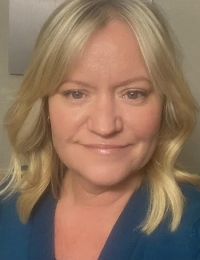
Lisa Lahey
Lisa Lahey is a dedicated holistic family nurse practitioner with 28 years of experience specializing in maternal child health and myofunctional therapy. With 17 years in hospital settings focusing in the areas of neuroscience, labour and delivery, postpartum, NICU, and perinatal services. Lisa opened her own clinic 10 years ago which is located in Indianapolis, Indiana. Her expertise includes functional medicine, feeding therapy, infant massage, craniosacral therapy, myofascial release, and myofunctional therapy, allowing her to support her patients' babies to adults. Lisa is a contributing author to the book Tongue Tied and shares her knowledge through lectures in the US and internationally on topics related to lactation, feeding, and oral myofunctional therapy. Passionate about healthy families, Lisa continually enhances her skills through ongoing education and training.
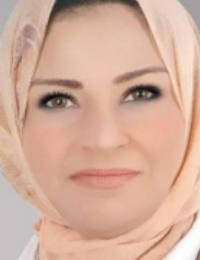
Shereen Abdelghani Soliman
Dr Shereen Soliman is a paediatrician, neonatology consultant and instructor at the Egyptian board of pediatrics, clinical nutrition physician, and IBCLC with over 22 years of experience. She is a board member of MILCC and an active volunteer at ILCA. She has received multiple awards, including the IBCLC & ILCA Award (2021 and 2023) and a USLCA nomination (2022). She has contributed to global breastfeeding initiatives, training programs, and conferences with UNICEF, WHO, and academic institutions. She authored The Ultimate Breastfeeding Study Guide (2021) and serves on multiple international advisory committees such as IBLCE, Gold neonatal and USBC.

Melissa Cole
Melissa Cole is a board-certified lactation consultant, neonatal oral-motor assessment professional and clinical herbalist in private practice. Melissa is passionate about providing comprehensive, holistic lactation support and improving the level of clinical lactation skills for health professionals. She enjoys researching and writing, especially on topics such tongue tie and botanical medicine. Her bachelor’s degree is in maternal/child health and lactation and her master’s degree is in therapeutic herbalism. Before pursuing her current path, Melissa’s background was in education and cultural arts, which has served her well in her work as a lactation consultant and healthcare educator. She loves living, working and playing in the beautiful Pacific Northwest with her 3 children.
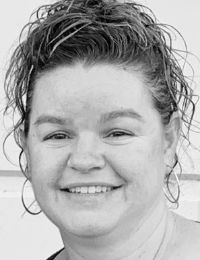
Christine Staricka
Christine Staricka is an IBCLC and trained childbirth educator with over 22 years of lactation experience in the hospital and the community. She is the host of Evolve Lactation Community, a membership and coaching program for aspiring and new lactation consultants. Christine also hosts Evolve Lactation Podcast and writes a blog on Substack called Evolve Lactation. She is the facilitator of the first licensed Baby Café to open in California.

Dianne Cassidy
Dianne is an IBCLC, podcaster, author, lactation education manager and has been working with families since 2008. She has worked with thousands of families in all areas of their breast/chest feeding journey. Dianne teaches using her real-life experiences and case studies, which sets her apart in the lactation field providing a personalized and realistic experience for her audiences. Dianne’s evolution began as a clinical, patient-centred lactation consultant to a public speaker and educator, where she really shines. Her energy is contagious, and is felt by families, lactation consultants and birth workers alike.
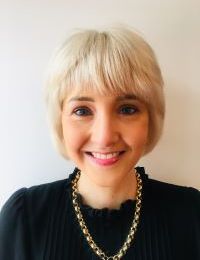
Kate Rassie
Dr Kate Rassie is a consultant endocrinologist at Monash Health and at Jean Hailes for Women’s Health, Melbourne. She is also a final-year PhD candidate at Monash Centre for Health Research and Implementation, Monash University. Her doctoral thesis focuses on the relationships between maternal metabolic health and breastfeeding, with a focus on insulin-resistant conditions such as PCOS and diabetes. Clinically, she works in diabetes, obesity and metabolism; and across all aspects of female hormonal health and reproductive endocrinology (including menopause, PCOS, hypothalamic amenorrhoea, menstrual mood disorders, bone health, weight management, and thyroid disease).

Adam Ofri
Dr Adam Ofri is a breast surgeon in Sydney, Australia, with rooms in North Sydney and Bondi Junction. He is also visiting medical officer at Bega South-East Regional Hospital. He has interests in preventative breast care (including tailored breast screening and risk assessment), benign and malignant breast disease. Surgically, he has a strong preference in Breast Conserving Surgery using advanced oncoplastic volume displacement and replacement techniques. He also has a passion for academia being a senior lecturer at the University of Sydney, and a clinical research fellow at the Royal Prince Alfred Institute of Academic Surgery. He is the recipient of the 2023 and 2024 Clinical Research Fellowships for Breast Cancer Trials and was awarded the 2023 John Collins Medal. His research is focussed on evaluating targeted axillary dissection in Australia and New Zealand, as well as designing a national RCT to evaluate DCISionRT. Dr Ofri has a strong personal interest in de-escalating breast cancer treatment, ensuring his patients receive the appropriate management of their particular situation.
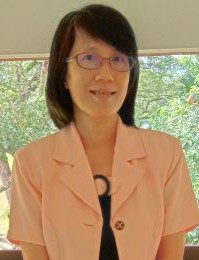
Siew Cheng Foong
Associate professor Dr Siew Cheng Foong obtained her medical degree from Universiti Sains Malaysia in 1994. She completed her postgraduate training in paediatrics and obtained the MRCP (UK) in 1998, then the Post-graduate Diploma in Health Professional Education (PG Dip HPE, RCSI) in 2022. She is currently with a medical school RCSI & UCD Malaysia Campus as an associate professor in in the Department of Paediatrics and also serves as a general paediatrician in a public hospital in Penang. She is a passionate breastfeeding advocate and researcher, an active member of the Making Penang Breastfeeding Friendly project, and is currently working in with a team to develop indicators for a breastfeeding-friendly city. She has published several papers on breastfeeding related topics, including a Cochrane systematic review on galactagogues, which won the prestigious Kenneth Warren award in 2021 for being a systematic review with high methodological quality that is relevant to health problems in developing countries. She is also the founding president of the Kangaroo Mother Care Advocates Malaysia (KAMY), a national-level NGO that supports kangaroo mother care for infants in Malaysia, and an active member of the Asia-Oceania KMC Network (A-OK net).

Charlotte Treitl
Charlotte Treitl, widely known as "The Milk Rebel," is a powerhouse in the world of lactation and infant feeding advocacy. As an IBCLC and clinical lead for Parenting at Anya, Charlotte is on a mission to revolutionise breastfeeding support—making it accessible, inclusive, and empowering for all families. With a decade of experience, Charlotte’s expertise spans from peer support and grassroots activism to clinical leadership and championing policy change. She provides personalised, evidence-based guidance, helping parents confidently navigate breastfeeding, chestfeeding, and human milk provision. At Anya, she spearheads the development of cutting-edge, research-backed resources to support families through the challenges of early parenthood. But Charlotte is more than just a lactation specialist —she’s a rebel with a cause. She fights for those without a voice or influence, advocating for systemic change to ensure breastfeeding support is a right, not a privilege. A fierce intersectional feminist, Charlotte isn’t afraid to shake up the status quo. She’s loud, a little sweary, and unapologetically passionate about improving health outcomes for families worldwide.
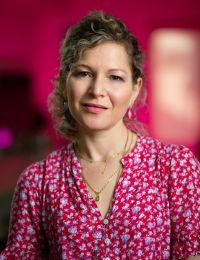
Nicole Bando
Nicole is an advanced accredited practising dietitian and IBCLC who works in private practice. She has a special interest in early life feeding and evidence-based, sustainable nutrition to support optimal growth, that meets a family at their unique needs. Nicole has extensive community and national level advocacy experience, frequently commenting in the media (TV, radio, and print), and as a regular presenter to medical and allied health colleagues. As convenor of the Dietitians Australia Paediatric and Maternal Health Interest Group and Co-Convenor of the Nutrition & Breastfeeding Working Group, Nicole advocates for policy implementation that protects and promotes breastfeeding to support maternal and infant health.
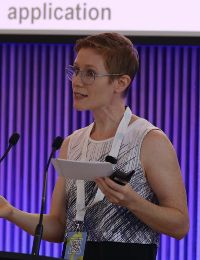
Katrin Langton
Katrin Langton is a media and communications researcher with a background in nutrition science, and a strong interest in maternal and child health. Her PhD project explored the role of mobile applications for infant feeding and baby-tracking in family life, including how app use shaped parental caregiving practices and role divisions. Her current research investigates the role of apps in the transition to parenthood, and the role of screen-based devices in children’s early life and is supported by Deakin University and the Australian Research Centre of Excellence for the Digital Child.

Natashia L Conner
Dr Conner, an IBCLC, holds a PhD and Master’s in Health Education and Promotion with a focus on behavioural health. She has worked across government, community organizations, public and private health sectors, and academia, including Union Institute & University, Drexel University, and Walden University. A dedicated advocate for racial and health equity, she specializes in health education, human lactation, and clinical instruction. Her research focuses on stigmas, discrimination, and behaviours affecting population health. With additional degrees in public health, maternal-child health, and medical administration, Dr. Conner is committed to advancing diversity, equity, and inclusion in healthcare and education.
Felicity Davis
Felicity trained as a pharmacist before embarking on a PhD in the field of breast cancer research at the University of Queensland (Australia). She subsequently trained at the National Institute of Environmental Health Sciences (NIH/NIEHS) in North Carolina as an NIH visiting fellow and in the Department of Pathology at the University of Cambridge as an NHMRC CJ Martin Fellow. In these postdoctoral positions, Felicity developed projects to improve our understanding of breast development and lactation. In 2018, she was awarded an NHMRC Career Development Fellowship and project grant to start her independent research group. She now runs two labs in Australia and Denmark, with kind support from the NHMRC and Novo Nordisk Foundation, and with the overarching goal to improve our understanding of mothers’, women’s and babies’ health.

Naomi Dow
Naomi is a GP, senior clinical lecturer and IBCLC in private practice. She has a passion for evidence-based practice, which sparked her interest in the topic of thrush several years ago. Naomi lives in the North-East of Scotland with her husband and two children.
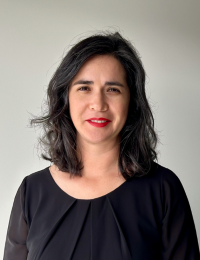
Heranush Hopkins
Heranush Hopkins is an IBCLC in private practice. She has dedicated over a decade to serve families in the communities where she has lived, in North and South America, Oceania and the Middle East. Heranush gives support in English and Spanish. She has a Bachelor’s in Health Sciences with a major in Integrated Human Health at Massey University and works on research neonatal health projects for the University of Auckland. She is involved in community development and educational activities. Heranush was inspired to help other families through her breastfeeding journey with her two beautiful children. Before becoming a parent, she worked in human resources and management in diverse global organisations including the Bahá’í World Centre.

Melissa Blake
Melissa Blake is a lecturer and PhD Candidate in the School of Nursing and Midwifery at Deakin University. Her primary research interest focuses on breastfeeding experiences of mothers with premature infants in the neonatal setting, and on breastfeeding practices of midwives and nurses. Melissa's research interest has stemmed from clinical experience when caring for mothers of premature infants in both the clinical environment and in the community. Melissa is an experienced nurse and midwife and has a Master of Professional Education and Training. As a lecturer, she teaches into Graduate Diploma of Midwifery and the undergraduate Bachelor of Nursing and Midwifery. Melissa is currently the deputy chair of the Academic Integrity & Progress Committee for the School of Nursing and Midwifery at Deakin University. Melissa’s PhD explored the influences on mothers who are breastmilk-feeding a late preterm infant within the context of a special care nursery. Melissa is currently involved with midwifery and neonatal projects in the maternity setting.
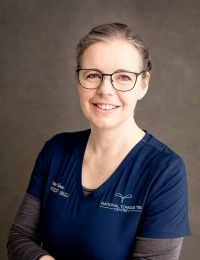
Kate Roche
Kate is the clinical director at the National Tongue Tie Centre in Ireland and leads a team of therapists and lactation consultants to provide the highest quality of rehabilitative care to infants, children and adults with oral dysfunctions. She is a chartered physiotherapist, IBCLC and paediatric feeding therapist. Having trained at the University of Liverpool, she worked in both Leeds and Southampton, where she led and delivered the regional neonatal service for pre-term and high-risk infants before moving to Ireland. She is a member of the Irish Society of Chartered Physiotherapists and registered with CORU. Kate has travelled overseas many times over the years to complete further training in feeding therapy, orofacial myofunctional therapy and craniosacral therapy, and now lectures internationally.

Jeanette Mesite Frem
Jeanette Mesite Frem is an experienced childbirth educator, IBCLC, and retired birth doula. She started her career working with families while serving as a Peace Corps Volunteer in Côte d'Ivoire, West Africa in the early 90s. She loved that work so much she went on to receive a public health master’s degree from Johns Hopkins School of Public Health, focusing her studies on nutrition for maternal and child health. Her two children were breastfed for more than 2 years each and Jeanette has experience pumping at work for both children and over the years has supported more than a thousand families with feeding. Jeanette provides prenatal childbirth and breastfeeding classes at her office in Northborough, Massachusetts, USA, as well as providing virtual feeding consultations. She also enjoys leading workshops for perinatal health professionals and mentoring those who work with families.
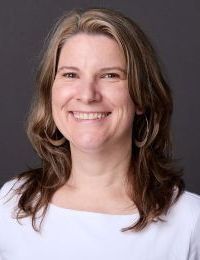
Katherine R. Standish
Dr Standish is a fellowship-trained breastfeeding medicine specialist and researcher in the Department of Family Medicine at Boston University. She is co-founder of the Breastfeeding Equity Center at Boston Medical Center, which aims to increase equity in breastfeeding support and outcomes. Her research addresses breastfeeding services and interventions in socially marginalized and medically high-risk populations. She currently serves as chair of the Protocol Committee of the Academy of Breastfeeding Medicine. Dr Standish studied medicine at Yale University, completed residency training and a primary care academic fellowship at Boston Medical Center, earned an MS in Epidemiology at Boston University School of Public Health, and completed a fellowship in breastfeeding and lactation medicine through the University of Rochester.
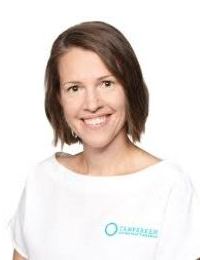
Minna Sillantaka
Minna Sillantaka is a Finnish osteopath who is passionate about helping paediatric patients with osteopathy. In her private practice she is working with a wide variety of patients and has long clinical experience in solving breastfeeding difficulties and treating common complaints of infancy. In her research she has immersed herself in multidisciplinary support and management of breastfeeding difficulties through lactation consultation and osteopathy. As an osteopath she values integrated approaches that also consider neuromusculoskeletal functionality of both the infant and the mother, with dyadic and family-centred perspectives.

Di Huimin
Di "Daphne" Huimin an IBCLC and Traditional Chinese Medicine (TCM) acupoint massage therapist from Beijing, China. She is certified by Peking University in Traditional Chinese Medicine and Traditional Chinese Massage. She serves as the director of Breastfeeding for Love Project at Peking University People's Hospital and is the co-founder and director of the China Overseas-Educated Scholars Foundation-Maternal and Infant Health Development Foundation Project. She is the author of China’s first lactation consultant textbook.

Daniela Karall
Dr Daniela Karall is a paediatrician with specialization in neonatology and paediatric intensive care, neuropediatrics and inherited metabolic disorders. She graduated from the Medical University of Innsbruck, where she works at the Clinic for Pediatrics. She has been working as an IBCLC since 2006. She teaches in neonatology, paediatrics and human lactation for both medical professionals and future lactation consultants in preparation for the international IBCLC exam. She is responsible for the service and care for inherited metabolic disorders in Western Austria. Daniela Karall is currently the president of the Austrian Society for Pediatric and Adolescent Medicine (ÖGKJ = “Österreichische Gesellschaft für Kinder- und Jugendheilkunde”). She is deputy director of the Clinic for Pediatrics I in Innsbruck. In clinical work, besides being responsible for the care of newborns, children, adolescents and adults with inherited metabolic disorders, she is also medical head of the institution’s human milk bank. She considers breast (milk) feeding in inherited metabolic disorders one of the main therapeutic interventions in these vulnerable infants.

Megan E Jensen
Dr Jensen is an advanced accredited practicing dietitian and senior research fellow with the Asthma and Breathing Program at the Hunter Medical Research Institute and the University of Newcastle, Australia. Dr Jensen has a track record in maternal and paediatric nutrition in respiratory disease, including the management of clinical asthma trials in Australia and Canada, and has contributed to healthcare professional and consumer resources, position statements and policies in the fields of nutrition and respiratory. Dr Jensen leads a Maternal & Paediatric Respiratory Nutrition research program, with a dedicated research stream on breastfeeding. Dr Jensen is passionate about improving the diet quality of infants, children and adolescents to improve their overall health and is interested in its relationship with respiratory health. Dr Jensen has over 80 publications and more than $7 million in grant funding including two prestigious fellowships.
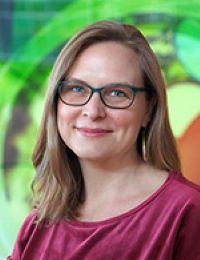
Casey Rosen-Carole
Dr Rosen-Carole is chief of the Division of Breastfeeding and Lactation Medicine (BFLM) at the University of Rochester in Rochester, NY, USA. She trained at New York Medical College where she graduated with a joint MD/MPH degree, and completed a residency in Paediatrics at Yale Children's Hospital. She was a practicing community paediatrician and residency faculty from 2008-2014, in New Haven, CT (Yale University), then in New York's Hudson Valley (New York College of Osteopathic Medicine and Mt. Sinai School of Medicine) before relocating to Rochester to complete a fellowship in Breastfeeding Medicine and General Academic Paediatrics with Dr Ruth Lawrence. At this time, she completed a master's degree in education, which serves as the foundation for her current work educating healthcare providers in advanced care of lactating people. She is the fellowship director for the University of Rochester's Breastfeeding and Lactation Medicine in-person fellowship, and for the LILAC fellowship, an online 2-year academic fellowship in BFLM. Her research focuses on education of healthcare providers in BFLM, implementation of best practices for lactation support, and the role of maternal stress in lactation. Dr Rosen-Carole was associate editor of Breastfeeding: A guide for the medical profession, 9th Ed. and will be co-editor for the 10th edition. She practices outpatient and inpatient Breastfeeding and Lactation Medicine.
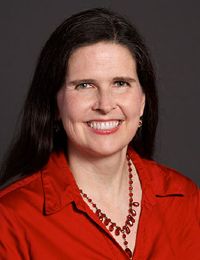
Marie Zahorick
Marie Zahorick became a La Leche League Leader in 1999 and an IBCLC in 2005. After several years of working as a hospital-based bilingual IBCLC, she attended nursing school and eventually became a board-certified Family Nurse Practitioner. In the meantime, she continued working as a hospital-based lactation consultant doing inpatient, outpatient, and Level III NICU lactation support at a variety of hospitals and with a wide variety of patient populations. After graduate school, Marie was recruited to work as a nurse practitioner in psychiatry. She was fellowship-trained to manage patients in the acute inpatient setting, partial hospitalization, outpatient office, and OB patients in the general hospital setting. She specializes in women’s psychiatry, especially medical management of women who are pregnant or lactating. Her expertise includes psychopharmacology in pregnant and lactating women as well as general psychopharmacology. She is experienced at diagnosing and treating mental illnesses such as bipolar disorder, perinatal/postpartum mood and anxiety disorders, postpartum psychosis, obsessive-compulsive disorder, premenstrual and perimenopausal mood disorders, and personality disorders. She lives in the Chicago area with her husband and they have three adult children.
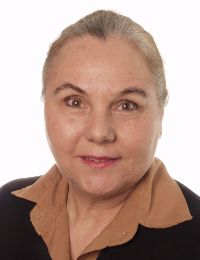
Stefanie Rosin
Dr Stefanie Rosin has been actively involved in breastfeeding support, since 2002, beginning with volunteer work in local support groups. In 2007, she became an IBCLC, and she has regularly delivered lectures, led workshops, and presented at international conferences. Her research focuses on breastfeeding and infant nutrition, with several published contributions, including articles in Maternal & Child Nutrition and the International Breastfeeding Journal, addressing global infant feeding policies, breastfeeding trends, and integrated care approaches in counselling. She completed her PhD in Health Sciences at Bielefeld University in 2014, with a dissertation on integrated care concepts in breastfeeding counselling. Since 2018, she has served as the national coordinator for Germany at the World Breastfeeding Trends Initiative (WBTi), working to assess and enhance global breastfeeding standards. She also contributed to the documentary “East Meets West: Protecting, Promoting, and Supporting Breastfeeding”, which explores breastfeeding counselling worldwide.

Anita Moorhead
Anita is a clinical nurse/midwife consultant (Lactation) at the Royal Women’s Hospital, Melbourne. She is also the trial coordinator for the DAME (Diabetes and Antenatal Milk Expressing) trial and PhD candidate at the Judith Lumley Centre, La Trobe University, Australia. Anita has several published papers and has collaborated on breastfeeding reports, hospital and state clinical guidelines and is a frequent presenter at national and international conferences.
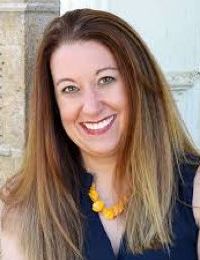
Gretchen Becker Crabb
Gretchen Becker Crabb is an occupational therapist, licensed professional counselor, and endorsed infant mental health therapist. She is also a certified lactation counselor, La Leche League Leader, and Brazelton Newborn Observation (NBO) trainer. Gretchen owns and operates a private practice in Madison, Wisconsin and is mentor/faculty for the University of Wisconsin-Madison Infant, Early Childhood and Family Mental Health Capstone Program. For 24 years, she has provided developmental, trauma, feeding, and attachment support for tiny humans and their caregivers in birth to three, preschool, private practice, and peer group settings. Gretchen is an international speaker, reflective supervisor, and infant mental health consultant. In these roles, she offers compassionate, experiential, and reflective holding spaces for professionals. She is a proud military spouse and mother of three incredible boys.